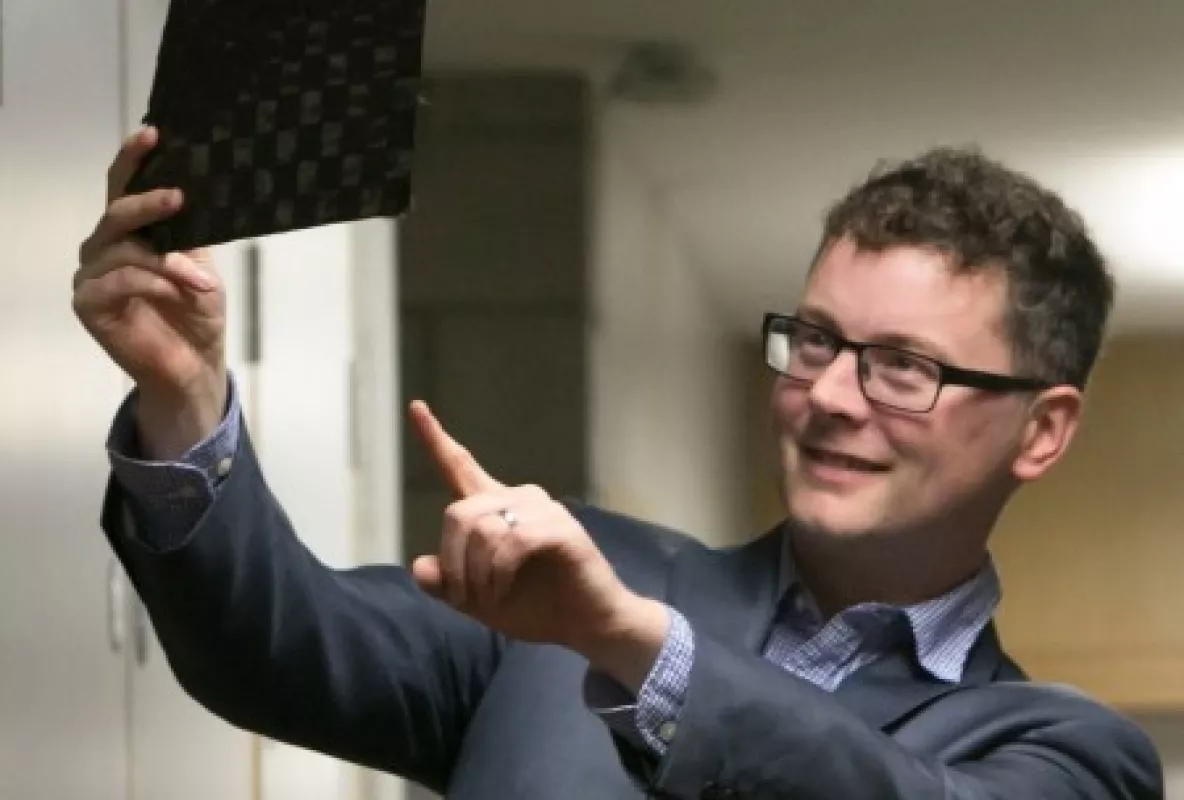
Groundbreaking technology developed at University of Limerick producing cheaper and more sustainable carbon fibre could lead to the cars of the future being manufactured from paper waste.
Carbon fibre is used as a reinforcement in plastic materials to produce composite materials, which are deployed in commercial high-end goods such as cars, aircraft computers and sports equipment like golf clubs.
These materials are oil-based, non-sustainable and are environmentally polluting during their production and end of life.
However, researchers based at UL’s Bernal Institute have produced carbon fibre from sustainable bio-resources. These materials have been used to produce car wing mirrors and sections for wind turbine blades, paving the way towards a more sustainable future for materials used in the automotive and wind energy sectors.
With the global market for composite materials worth upwards of US$90 billion, UL is leading the way on the production of bio-based carbon fibre, which could signal the dawn of a new green industry for Ireland.
“Our team has converted organic waste from forestry into carbon fibres which have already shown enormous potential in terms of performance in automotive, aerospace and wind-turbine demonstrator tests,” explained Dr Maurice N Collins, a senior lecturer at UL’s school of engineering.
“Our technology drastically reduces energy usage and carbon emissions during production, as well as the cost of carbon fibres. This is particularly significant as carbon fibres are known for their high performance and their high cost. In the future we can expect higher performance goods at lower cost to the consumer,” added Dr Collins, principal investigator and coordinator on the research project being run out of UL’s Bernal Institute.
With Biorefineries popping up all around Europe, including in Ireland, to convert plant-matter or biomass to fuel, heat, power and chemicals, vast quantities of waste material called lignin are being produced as a result.
Between 40 and 50 million tons of lignin are produced worldwide per year and the state of the art technology developed at UL can produce material using conventional and newly developed energy efficient, dry and waste-free processing and pre-treatment techniques.
It means these lignin-rich waste streams are being converted to carbon fibre at UL using a production process that utilises less energy and produces a smaller carbon footprint.
“Our bio-based carbon fibres are being used to produce composite materials for application in the energy, aerospace, biomedical and automotive sectors, offering a high-end commercial route to valorising forestry waste,” explained Dr Collins.
Dr Mario Culebras Rubio, a researcher on the project and member of the Bernal Institute at UL, said that it has also “been very successful in exploring alternative uses of Lignin to produce carbon-based nanomaterials for energy harvesting and storage” and that it was a starting point for future research proposals.
The research that developed this new production process began with LIBRE, a project that aimed to free the composite industry of its reliance on oil-based production, funded by the European Union’s Biobased Industries Consortium under the Horizon 2020 research and innovation programme.
With LIBRE now finished, further H2020 funding has been secured for the VIBES project, which seeks to utilise the technology to develop the first fully bio-based and recyclable composite materials.
The outcome of the research being conducted at UL has the potential to have a significant impact on the development of new industries for Irish forestry and agriculture, the project team believe.
“Sustainable materials are of emerging strategic importance to UL and are certain to underpin the rapid development of a post pandemic modern society,” agreed UL Vice President Research Professor Norelee Kennedy.
“Our research seeks to address many global challenges and the work by Dr Collins and his group in building on existing strength in materials is an excellent example of addressing challenges in sustainability. This research puts UL at the forefront of sustainable materials research in application areas such as biomedical, packaging, aerospace and automotive.”
Patrick Barrett, Department of Agriculture, Food and Marine and National Contact Point for Bio-based Industries said: “This project is a great example of Irish researchers working with companies to develop high value products which have tremendous potential for our indigenous industries.
“This type of technology drives innovation and helps to deliver industries of the future which will create new jobs and deliver growth in our bio-economy,” he added.